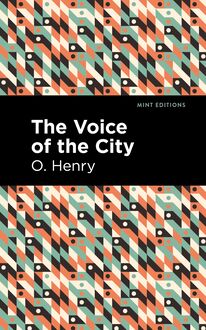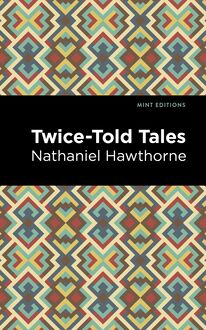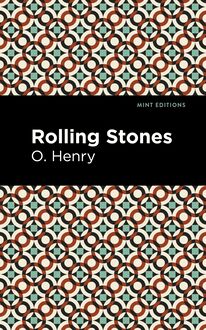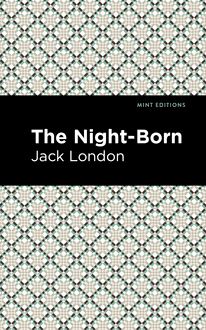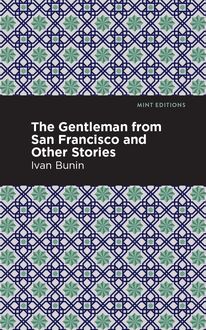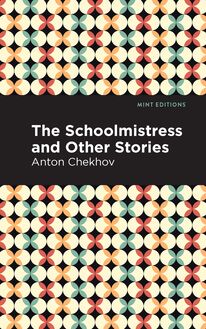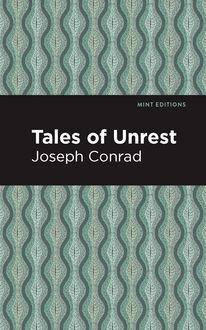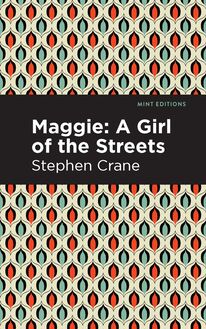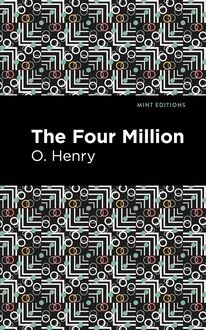-
 Univers
Univers
-
 Ebooks
Ebooks
-
 Livres audio
Livres audio
-
 Presse
Presse
-
 Podcasts
Podcasts
-
 BD
BD
-
 Documents
Documents
-
- Cours
- Révisions
- Ressources pédagogiques
- Sciences de l’éducation
- Manuels scolaires
- Langues
- Travaux de classe
- Annales de BEP
- Etudes supérieures
- Maternelle et primaire
- Fiches de lecture
- Orientation scolaire
- Méthodologie
- Corrigés de devoir
- Annales d’examens et concours
- Annales du bac
- Annales du brevet
- Rapports de stage
La lecture à portée de main
Vous pourrez modifier la taille du texte de cet ouvrage
Découvre YouScribe en t'inscrivant gratuitement
Je m'inscrisDécouvre YouScribe en t'inscrivant gratuitement
Je m'inscrisEn savoir plus
Vous pourrez modifier la taille du texte de cet ouvrage
En savoir plus

Description
From the author of the classic novel Call of the Wild, Jack London’s Smoke Bellew features a vivacious depiction of a gold rush adventure. Christopher Bellew, more commonly known as Kit, lives a comfortable life in San Francisco. He writes daily for a paper and his inherited wealth promises to keep him well-off for a long while. Still, Kit cannot help but feel complacent. As a young man, he has not completely figured out what he really wants in life. Because of this, Kit is happy to help when his uncle and cousins ask him to accompany them to the Alaskan Gold Rush. While Kit has no plans of staying with his uncle and cousins, he agrees to help them carry the many provisions required for such a journey. Each loaded with heavy supplies, Kit, his uncle, and his cousins begin their trek through the Yukon territory. Embarking on a journey into the rough Alaskan wilderness, the group must hike through mountains, rapids, icy lakes, and the biting cold of the Alaskan weather. It is more difficult than anything Kit has ever had to accomplish, but something in the bitter Alaskan wind calls to him, and he feels more alive than ever. Choosing to abandon his San Franciscan life, Kit fights to prosper in the Yukon territory, learning to love and starting grow into adulthood.
Described as one of the hidden gems of Jack London’s literary career, Smoke Bellew surprises each reader with vivid description and wonderful action, feeding an uneasily quenched sense of adventure. Smoke Bellew is a collection of stories, all connected and featuring the same main character, allowing audiences to witness Christopher “Kit” Bellew’s journey to adulthood. With elements of romance and comedy, this adventure novel caters to many. London’s Smoke Bellew portrays a romantic portrait of the gold rush, both entertaining and educating readers on such an exciting and unique time in history.
This edition of Smoke Bellew by Jack London features a new, eye-catching cover design and a modern font, creating an approachable reading experience for a contemporary audience.
Sujets
Informations
| Publié par | Mint Editions |
| Date de parution | 19 janvier 2021 |
| Nombre de lectures | 0 |
| EAN13 | 9781513275222 |
| Langue | English |
| Poids de l'ouvrage | 1 Mo |
Informations légales : prix de location à la page 0,0500€. Cette information est donnée uniquement à titre indicatif conformément à la législation en vigueur.
Extrait
Smoke Bellew
Jack London
Smoke Bellew was first published in 1912.
This edition published by Mint Editions 2021.
ISBN 9781513270227 | E-ISBN 9781513275222
Published by Mint Editions ®
minteditionbooks .com
Publishing Director: Jennifer Newens
Design & Production: Rachel Lopez Metzger
Typesetting: Westchester Publishing Services
C ONTENTS I. T HE T ASTE OF THE M EAT II. T HE M EAT III. T HE S TAMPEDE TO S QUAW C REEK IV. S HORTY D REAMS V. T HE M AN ON THE O THER B ANK VI. T HE R ACE FOR N UMBER T HREE VII. T HE L ITTLE M AN VIII. T HE H ANGING OF C ULTUS G EORGE IX. T HE M ISTAKE OF C REATION X. A F LUTTER IN E GGS XI. T HE T OWN- S ITE OF T RA- L EE XII. W ONDER OF W OMAN
I
T HE T ASTE OF THE M EAT
I n the beginning he was Christopher Bellew. By the time he was at college he had become Chris Bellew. Later, in the Bohemian crowd of San Francisco, he was called Kit Bellew. And in the end he was known by no other name than Smoke Bellew. And this history of the evolution of his name is the history of his evolution. Nor would it have happened had he not had a fond mother and an iron uncle, and had he not received a letter from Gillet Bellamy.
“I have just seen a copy of The Billow,” Gillet wrote from Paris. “Of course O’Hara will succeed with it. But he’s missing some tricks.” Here followed details in the improvement of the budding society weekly. “Go down and see him. Let him think they’re your own suggestions. Don’t let him know they’re from me. If you do, he’ll make me Paris correspondent, which I can’t afford, because I’m getting real money for my stuff from the big magazines. Above all, don’t forget to make him fire that dub who’s doing the musical and art criticism. Another thing. San Francisco has always had a literature of her own. But she hasn’t any now. Tell him to kick around and get some gink to turn out a live serial, and to put into it the real romance and glamour and colour of San Francisco.”
And down to the office of The Billow went Kit Bellew faithfully to instruct. O’Hara listened. O’Hara debated. O’Hara agreed. O’Hara fired the dub who wrote criticisms. Further, O’Hara had a way with him—the very way that was feared by Gillet in distant Paris. When O’Hara wanted anything, no friend could deny him. He was sweetly and compellingly irresistible. Before Kit Bellew could escape from the office, he had become an associate editor, had agreed to write weekly columns of criticism till some decent pen was found, and had pledged himself to write a weekly instalment of ten thousand words on the San Francisco serial—and all this without pay. The Billow wasn’t paying yet, O’Hara explained; and just as convincingly had he exposited that there was only one man in San Francisco capable of writing the serial and that man Kit Bellew.
“Oh, Lord, I’m the gink!” Kit had groaned to himself afterward on the narrow stairway.
And thereat had begun his servitude to O’Hara and the insatiable columns of The Billow. Week after week he held down an office chair, stood off creditors, wrangled with printers, and turned out twenty-five thousand words of all sorts. Nor did his labours lighten. The Billow was ambitious. It went in for illustration. The processes were expensive. It never had any money to pay Kit Bellew, and by the same token it was unable to pay for any additions to the office staff.
“This is what comes of being a good fellow,” Kit grumbled one day.
“Thank God for good fellows then,” O’Hara cried, with tears in his eyes as he gripped Kit’s hand. “You’re all that’s saved me, Kit. But for you I’d have gone bust. Just a little longer, old man, and things will be easier.”
“Never,” was Kit’s plaint. “I see my fate clearly. I shall be here always.”
A little later he thought he saw his way out. Watching his chance, in O’Hara’s presence, he fell over a chair. A few minutes afterwards he bumped into the corner of the desk, and, with fumbling fingers, capsized a paste pot.
“Out late?” O’Hara queried.
Kit brushed his eyes with his hands and peered about him anxiously before replying.
“No, it’s not that. It’s my eyes. They seem to be going back on me, that’s all.”
For several days he continued to fall over and bump into the office furniture. But O’Hara’s heart was not softened.
“I tell you what, Kit,” he said one day, “you’ve got to see an oculist. There’s Doctor Hassdapple. He’s a crackerjack. And it won’t cost you anything. We can get it for advertizing. I’ll see him myself.”
And, true to his word, he dispatched Kit to the oculist.
“There’s nothing the matter with your eyes,” was the doctor’s verdict, after a lengthy examination. “In fact, your eyes are magnificent—a pair in a million.”
“Don’t tell O’Hara,” Kit pleaded. “And give me a pair of black glasses.”
The result of this was that O’Hara sympathized and talked glowingly of the time when The Billow would be on its feet.
Luckily for Kit Bellew, he had his own income. Small it was, compared with some, yet it was large enough to enable him to belong to several clubs and maintain a studio in the Latin Quarter. In point of fact, since his associate-editorship, his expenses had decreased prodigiously. He had no time to spend money. He never saw the studio any more, nor entertained the local Bohemians with his famous chafing-dish suppers. Yet he was always broke, for The Billow, in perennial distress, absorbed his cash as well as his brains. There were the illustrators, who periodically refused to illustrate, the printers, who periodically refused to print, and the office-boy, who frequently refused to officiate. At such times O’Hara looked at Kit, and Kit did the rest.
When the steamship Excelsior arrived from Alaska, bringing the news of the Klondike strike that set the country mad, Kit made a purely frivolous proposition.
“Look here, O’Hara,” he said. “This gold rush is going to be big—the days of ’49 over again. Suppose I cover it for The Billow? I’ll pay my own expenses.”
O’Hara shook his head.
“Can’t spare you from the office, Kit. Then there’s that serial. Besides, I saw Jackson not an hour ago. He’s starting for the Klondike to-morrow, and he’s agreed to send a weekly letter and photos. I wouldn’t let him get away till he promised. And the beauty of it is, that it doesn’t cost us anything.”
The next Kit heard of the Klondike was when he dropped into the club that afternoon, and, in an alcove off the library, encountered his uncle.
“Hello, avuncular relative,” Kit greeted, sliding into a leather chair and spreading out his legs. “Won’t you join me?”
He ordered a cocktail, but the uncle contented himself with the thin native claret he invariably drank. He glanced with irritated disapproval at the cocktail, and on to his nephew’s face. Kit saw a lecture gathering.
“I’ve only a minute,” he announced hastily. “I’ve got to run and take in that Keith exhibition at Ellery’s and do half a column on it.”
“What’s the matter with you?” the other demanded. “You’re pale. You’re a wreck.”
Kit’s only answer was a groan.
“I’ll have the pleasure of burying you, I can see that.”
Kit shook his head sadly.
“No destroying worm, thank you. Cremation for mine.”
John Bellew came of the old hard and hardy stock that had crossed the plains by ox-team in the fifties, and in him was this same hardness and the hardness of a childhood spent in the conquering of a new land.
“You’re not living right, Christopher. I’m ashamed of you.”
“Primrose path, eh?” Kit chuckled.
The older man shrugged his shoulders.
“Shake not your gory locks at me, avuncular. I wish it were the primrose path. But that’s all cut out. I have no time.”
“Then what in—?”
“Overwork.”
John Bellew laughed harshly and incredulously.
“Honest.”
Again came the laughter.
“Men are the products of their environment,” Kit proclaimed, pointing at the other’s glass. “Your mirth is thin and bitter as your drink.”
“Overwork!” was the sneer. “You never earned a cent in your life.”
“You bet I have—only I never got it. I’m earning five hundred a week right now, and doing four men’s work.”
“Pictures that won’t sell? Or—er—fancy work of some sort? Can you swim?”
“I used to.”
“Sit a horse?”
“I have essayed that adventure.”
John Bellew snorted his disgust. “I’m glad your father didn’t live to see you in all the glory of your gracelessness,” he said. “Your father was a man, every inch of him. Do you get it? A man. I think he’d have whaled all this musical and artistic tom foolery out of you.”
“Alas! these degenerate days,” Kit sighed.
“I could understand it, and tolerate it,” the other went on savagely, “if you succeeded at it. You’ve never earned a cent in your life, nor done a tap of man’s work.”
“Etchings, and pictures, and fans,” Kit contributed unsoothingly.
“You’re a dabbler and a failure. What pictures have you painted? Dinky water-colours and nightmare posters. You’ve never had one exhibited, even here in San Francisco—”
“Ah, you forget. There is one in the jinks room of this very club.”
“A gross cartoon. Music? Your dear fool of a mother spent hundreds on lessons. You’ve dabbled and failed. You’ve never even earned a five-dollar piece by accompanying some one at a concert. Your songs?—rag-time rot that’s never printed and that’s sung only by a pack of fake Bohemians.”
“I had a book published once—those sonnets, you remember,” Kit interposed meekly.
“What did it cost you?”
“Only a couple of hundred.”
“Any other achievements?”
“I had a forest play acted at the summer jinks.”
“What did you get for it?”
“Glory.”
“And you used to swim, and you have essayed to sit a horse!” John Bellew set his glass down with unnecessary violence. “What earthly good are you anyway? You were well put up, yet even at university you didn’t play football. You didn’t row. You didn’t—”
“I boxed and fenced—some.”
“When did you box last?”
“Not since, but I was considered an excellent judge of time and distance, only I was—er—”
“Go on.”
“Considered desultory.”
“Lazy, you me
-
 Univers
Univers
-
 Ebooks
Ebooks
-
 Livres audio
Livres audio
-
 Presse
Presse
-
 Podcasts
Podcasts
-
 BD
BD
-
 Documents
Documents
-
Jeunesse
-
Littérature
-
Ressources professionnelles
-
Santé et bien-être
-
Savoirs
-
Education
-
Loisirs et hobbies
-
Art, musique et cinéma
-
Actualité et débat de société
-
Jeunesse
-
Littérature
-
Ressources professionnelles
-
Santé et bien-être
-
Savoirs
-
Education
-
Loisirs et hobbies
-
Art, musique et cinéma
-
Actualité et débat de société
-
Actualités
-
Lifestyle
-
Presse jeunesse
-
Presse professionnelle
-
Pratique
-
Presse sportive
-
Presse internationale
-
Culture & Médias
-
Action et Aventures
-
Science-fiction et Fantasy
-
Société
-
Jeunesse
-
Littérature
-
Ressources professionnelles
-
Santé et bien-être
-
Savoirs
-
Education
-
Loisirs et hobbies
-
Art, musique et cinéma
-
Actualité et débat de société
- Cours
- Révisions
- Ressources pédagogiques
- Sciences de l’éducation
- Manuels scolaires
- Langues
- Travaux de classe
- Annales de BEP
- Etudes supérieures
- Maternelle et primaire
- Fiches de lecture
- Orientation scolaire
- Méthodologie
- Corrigés de devoir
- Annales d’examens et concours
- Annales du bac
- Annales du brevet
- Rapports de stage
